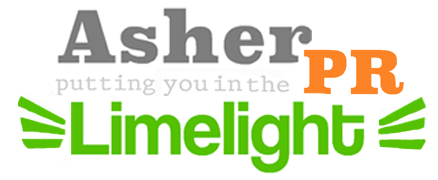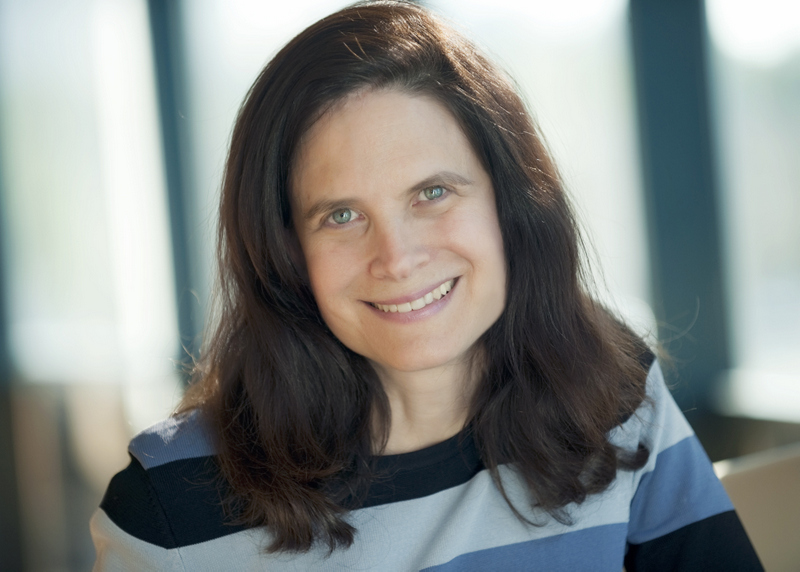Scott Stossel Speaks Sunday
at the MJCCA
Few people would expect a calm Harvard graduate, New York Times best-selling author, and editor of The Atlantic to have anxiety about getting fired from his job, but Scott Stossel does. Aside from feeling anxious about completing a task for work on time, Stossel is anxious about most everything: vomiting, fainting, speaking in public, flying, germs, cheese and more. On the outside, people see him as cool and collected, but his inside emotions are burning. At his own wedding he was so anxious that sweat penetrated through his clothes as he shook severely. Since the age of 7, the now 45-year-old journalist has been fighting anxiety with a mix of antidotes, including numerous medications, alcohol, a variety of therapies, meditation, yoga and praying. Most have worked little to none.
Stossel’s therapist, who has specialized in anxiety for 40 years, defines anxiety as “apprehension about future suffering.” The author’s research on anxiety reveals that we all have it to some degree, and one in five of us suffer from an anxiety disorder. In his New York Times best-selling book “My Age of Anxiety: Fear, Hope, Dread, and the Search for Peace of Mind,” the journalist shares his personal experiences with the disorder (some are quite funny), as well as the history and science of it.
Stossel will be speaking Sunday, March 1 at 7:30 p.m. at the Marcus Jewish Community Center Atlanta, MJCCA. My Q&A with him is below. If you’d like one or two free tickets to the event, please leave a comment below as I will be giving away two pairs of tickets to the first two people who leave a comment.
SA: You’re anxious about public speaking, yet you do it a lot. What prompts you to keep speaking in public even though you are so anxious about it?
SS: Partly self-masochism. The main reason is I want people to find out about the book, to buy it and learn about it and hopefully benefit from it. It’s also therapeutic as a protracted form of exposure therapy, which is how you’re supposed to treat phobias and anxiety, by indirectly confronting yourself with the thing that you really fear. Since the hardcover came out a year ago, I have been doing it (speaking publicly) on and off for a year, and it has gotten easier over time. Which isn’t to say that it’s always easy. And I medicate.
SA: How does that affect your writing when you medicate?
SS: It doesn’t affect it well. I couldn’t go do an event, if it was a big event, and then immediately go back to my desk and write with any crispness or clarity or much coherence. I kinda need to take a nap first. It’s not ideal in that respect.
SA: What about on a normal day like today, you still have to take medication don’t you?
SS: Yeah, but it’s not much most of the time. By not having to take a bunch of benzodiazepines like Xanax, I’m usually fine to work.
SA: What is it like when you interview a subject? Do you still feel that anxiety then or do you feel like “I’m not on display, you are”?
SS: It’s unpredictable. I definitely feel less anxiety in that situation. There are times when I don’t feel any more (anxious) than the normal person would. Then there are times when it will spring up on me unexpectedly and pretty bad, but by and large it’s a lot less on average than having to publicly perform on stage.
SA: You wrote in your article in The Atlantic that even reading a book gives you anxiety? What is it about reading, something that you do all alone, that makes you feel anxious?
SS: I don’t think it’s specifically that reading makes me anxious. What I was trying to say is that these panic attacks can suddenly come out of nowhere (while I’m) doing any old thing. Reading, actually, is not something that makes me particularly anxious. There are moments when anxiety creeps up on me. If I were to succumb to an anxiety attack while reading it would probably be either because the content in the book triggered anxious thoughts or because I was starting to feel physically unwell for some completely other reason. I’ll get hit with anxiety at all times doing anything, but reading is not particularly anxiety producing. In fact, it’s one of the least anxiety producing things.
SA: What has been the biggest help for your anxiety?
SS: Medication for sure, but aside from that, certain deep breathing techniques. Mindfulness meditation to calm yourself down. Cognitive behavioral therapy didn’t work. When I did exposure therapy undergirded by Cognitive Behavioral Therapy at Boston University’s Center for Anxiety Disorders for my emetophobia (the fear of vomiting, which he hasn’t done since 1977), it focused on trying to reframe your cognition, or change you thought patterns. It’s trying to break maladaptive habits or thoughts in order to see things in a less fearful way, which has been effective with public speaking phobias. It hasn’t cured me but it has helped.
SA: What do you do now other than medication and meditation to appease it? Are there other things you do to calm yourself down?
SS: That’s mainly it. I’m still in psychotherapy with Dr. W. (his therapist who has specialized in treating anxiety for 40 years).
SA: Do you even feel anxiety when you talk to someone like me, somebody who doesn’t know you but is asking questions?
SS: Sure, as I say it is sort of unpredictable. It has a lot to do with certain factors that are predictable, like Have I gotten enough sleep? Have I gotten exercise? Or if I drink too much caffeine. Sometimes it’s totally unpredictable and I don’t know why sometimes it’s no problem at all, and other times things can be either mildly or overwhelmingly anxiety producing.
SA: If I know that I’m going to be talking to someone who has anxiety, what is the best way for me to go about talking with that person to make them feel OK with me? Is there anything you could recommend that I and others do?
SS: I think the answer is no, because I think – speaking only for myself, and I think probably for other people – you don’t want to feel like you’re being treated any differently or with kid gloves, or certainly patronizingly or anything like that. In the throes of an anxious attack some of the things you don’t want to say are “calm down” or “just get over it.” It’s not so easy or we would. I think the way is to interact normally with people. Stay in the moment with them. If you’re giving them special treatment, it won’t necessarily help them get cured. On the other hand, being gentle and kind is always a good thing for anyone who is in distress.
SA: In the first chapter of your book, you wrote: “I am buffeted by worry: about my health and my family members’ health; about finances; about work; about the rattle in my car and the dripping in my basement; about the encroachment of old age and the inevitability of death; about everything and nothing.”
It reminded me of Woody Allen, and you’ve been compared to him before. I wonder if you’ve ever thought about doing a comedy routine or writing a play about this?
SS: I don’t think I’d ever do a one-man comedy show because that would provoke all my worse anxiety, even if I were to get up there and be funny. On the other hand, the book has been adapted, the theatrical rights of the book have been acquired by Second City improv theater group out of Chicago. They are working on an outline that another writer and I worked on and possibly turning that into a stage production. Who knows if it’ll actually get off the ground. It’s been fun thinking about it and working on it. I wouldn’t be appearing in it. There would be someone else playing me. That would be the idea.
SA: I hope that whatever Second City does with it, it is something that can be shared with many people, not just in Chicago but everywhere.
SS: Thank you. I share that hope and I hope you’re right.
Click here to see excerpts from the book in The Atlantic.




Great interview — insightful, thought provoking questions that led to revealing responses. I’m a fan of Scott’s and would love to get a free pass to the event on Sunday.
Great review Susan! As always. Can’t wait to hear him. I’d love two free tickets! Thanks!
Hi Susan, Joyce just told me about this event. If you still have a ticket I would love to get one and attend. Thanks.
This looks intriguing!